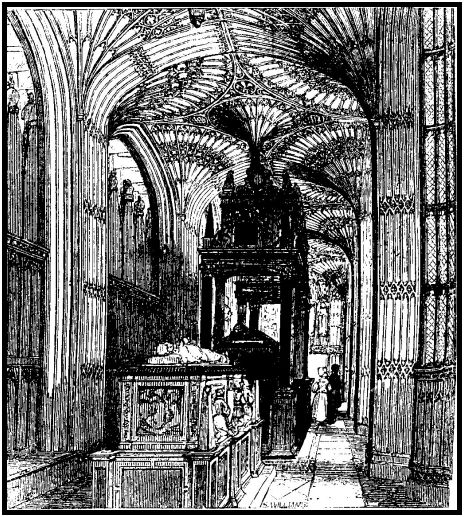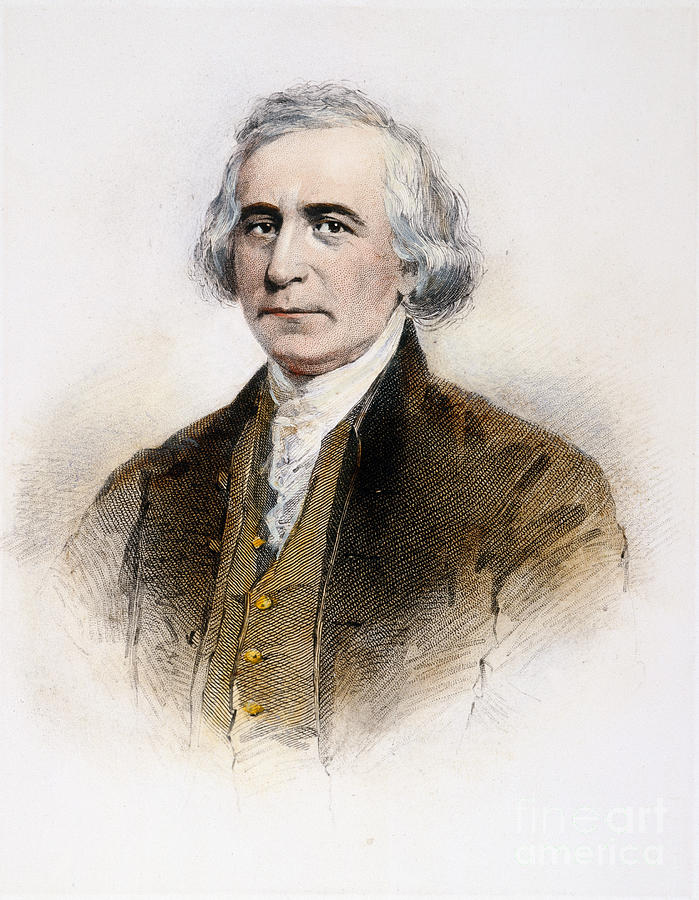|
|
Online Poems |
|
|
Philip Freneau (1752-1832) from The House of Night (1781; opening verses)
(adapted from http://www.gutenberg.org/files/38475/38475-h/38475-h.htm;
spelling modernized)
|
|
Instructor's note: For biographical information regarding Freneau, see "The Indian Burying-Ground."
Of relevance here: Freneau's career spanned the Enlightenment / Age of Reason period of the USA's Founding, with its emphasis on reason, satire, and political action, but his work anticipated and continued into the era of Romanticism.
Discussion questions: 1. Identify elements of the gothic.
2. Identify elements of Romanticism, particularly the validation of imagination or fancy. Compare Freneau's contemporary Phillis Wheatley, "On Imagination."
3. How does the poem's speaker defend the value of poetry, imagination, and dreams over fact, reason, and history?
![]()
from The House of Night
Trembling I write my dream, and recollect
A fearful vision at the midnight
hour;
So late, Death over me spread his sable wings,
Painted with fancies
of malignant power!
Such was
the dream the sage Chaldean* saw
Disclosed to him that felt heaven's vengeful
rod,
Such was the ghost, who through deep silence cried,
Shall mortal
man—be juster than his God?
Let
others draw from smiling skies their theme,
And tell of climes that boast
unfading light,
I draw a darker scene, replete with gloom,
I sing the
horrors of the House of Night.
Stranger, believe the truth experience tells,
Poetic dreams are of a finer
cast
Than those which over the sober brain diffused,
Are but a repetition
of some action past.
Fancy, I
own thy power—when sunk in sleep
[fancy = imagination; mental association rather than logic]
Thou
playest thy wild delusive part so well
You lift me into immortality,
Depict new heavens, or draw the scenes of hell.
By some
sad means, when Reason holds no sway,
Lonely I roved at midnight o'er a plain
Where murmuring streams and mingling rivers flow
Far to their springs, or
seek the sea again.
Sweet
vernal May! though then thy woods in bloom
Flourished, yet nought of this
could Fancy see,
[fancy = imagination; mental association rather than logic]
No wild
pinks blessed the meads, no green the fields,
And naked seemed to stand each
lifeless tree:
Dark was
the sky, and not one friendly star
Shone from the zenith or horizon, clear,
Mist sate upon the woods, and darkness rode
In her black chariot, with a wild
career.
And from
the woods the late resounding note
Issued of the loquacious Whip-poor-will*
Hoarse,
howling dogs, and nightly roving wolves
Clamored from far off cliffs
invisible.
[*Freneau's note: "A
Bird peculiar to America, of a solitary nature, who never sings but in the
night. Her note resembles the name given to her by the country people.]
Rude,
from the wide extended Chesapeake
[Chesapeake = mid-Atlantic estuary or inlet]
I
heard the winds the dashing waves assail,
And saw from far, by picturing
fancy formed,
[fancy = imagination; mental association rather than logic]
The
black ship travelling through the noisy gale.
At last,
by chance and guardian fancy led,
I reached a noble dome, raised fair and high,
And saw the light from
upper windows flame,
Presage of mirth and hospitality.
And by
that light around the dome appeared
A mournful garden of autumnal hue,
Its
lately pleasing flowers all drooping stood
Amidst high weeds that in rank
plenty grew.
The
Primrose there, the violet darkly blue,
Daisies and fair Narcissus ceased to
rise,
Gay spotted pinks their charming bloom withdrew,
And Polyanthus
quenched its thousand dyes.
No
pleasant fruit or blossom gaily smiled,
Nought but unhappy plants or trees
were seen,
The yew, the myrtle, and the church-yard elm,
[church-yard = graveyard]
The
cypress, with its melancholy green.
There
cedars dark, the osier, and the pine,
[osier = willow]
Shorn tamarisks, and weeping willows grew,
The poplar tall, the lotus, and
the lime,
And pyracantha did her leaves renew.
The
poppy there, companion to repose,
Displayed her blossoms that began to fall,
And here the purple amaranthus rose
With mint strong-scented, for the
funeral.
And here
and there with laurel shrubs between
A tombstone lay, inscribed with strains
of woe,
And stanzas sad, throughout the dismal green,
Lamented for the
dead that slept below.
Peace to
this awful dome!—when strait I heard
The voice of men in a secluded room,
Much did they talk of death, and much of life,
Of coffins, shrouds, and
horrors of a tomb. . . .
[Instructor's
note: Thus end the first 18 stanzas of poem, which continues for a
total of 136 stanzas. In passages immediately following, the dreamer-narrator
enters the House of Night, climbs three storeys of winding stairs, and
encounters the personification of Death as a grinning skeleton on a couch whose
head is encircled by “ghosts, imps” and “phantoms” of “jealousies and cares.”

gothic interior

